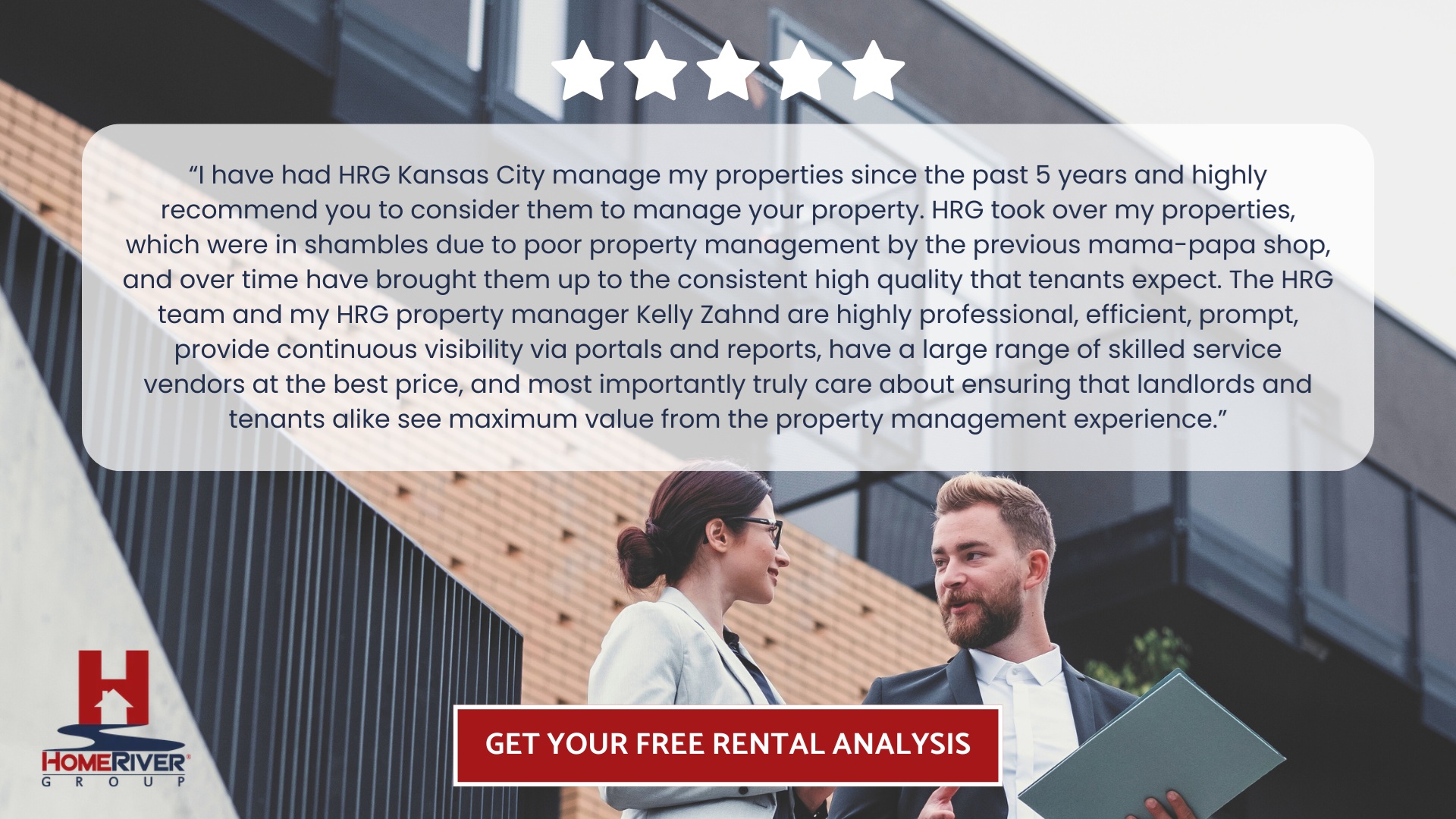
How To Rent Out Your House: A Beginner’s Guide For Property Owners
At HomeRiver Group, we understand the challenges and complexities of property management. We pride ourselves on delivering exceptional service with local expertise, ensuring your property becomes a valuable and stress-free investment. With our unique combination of dedicated local market expertise and centralized operations, asset management, and reporting capabilities, HomeRiver Group stands as the premier national property management company.
Renting out your house offers a lucrative opportunity for property owners to generate passive income, capitalize on property appreciation, and build wealth over time. However, renting a property can seem daunting and complex, especially for first-time landlords. From understanding the legal requirements to finding reliable tenants and managing property maintenance, numerous factors must be considered. That's where we come in.
This article will explore the essential steps and considerations for renting out your house, from understanding your legal responsibilities to preparing your property, maximizing profitability, and managing finances effectively.
Understanding The Legal Aspects Of Renting
Before renting out your house, you must familiarize yourself with the legal responsibilities of being a landlord.
This section will guide you through the legal considerations to ensure you are well-prepared to rent your property.
Familiarize Yourself With Local Laws
Landlord-tenant laws vary significantly from one jurisdiction to another. These laws cover a wide range of topics including, but not limited to, security deposits, eviction procedures, and tenant rights to privacy. For instance, some areas may impose rent control regulations that limit how much you can charge for rent. Therefore, it is essential to research and understand the specific laws applicable in your area to avoid potential legal issues.
Lease Agreements
A well-drafted lease agreement is the cornerstone of a successful landlord-tenant relationship. This legally binding document should outline all the terms and conditions of the rental arrangement, including the rent payment schedule, maintenance responsibilities, and policies regarding pets and subletting. To ensure your lease agreement complies with local laws and fully protects your interests, consider consulting with a legal professional experienced in landlord-tenant matters.
Landlord Responsibilities And Tenant Rights
As a landlord, you have legal obligations to provide a habitable living environment for your tenants. This includes ensuring the property meets safety codes, making necessary repairs promptly, and complying with anti-discrimination laws. On the other hand, tenants have rights to privacy, which means you must provide notice before entering the property, except in emergencies. Understanding these responsibilities and rights is key to maintaining a positive relationship with your tenants and avoiding legal disputes.
Security Deposits
Handling security deposits correctly is another critical aspect of renting out your house. Most states have specific regulations governing security deposit collection, holding, and return. These laws typically outline the maximum amount you can charge, how long you have after the tenant moves out to return the deposit or provide an itemized list of deductions, and what conditions warrant withholding part or all of the deposit. Familiarizing yourself with these rules can help you avoid conflicts and potential penalties.
Staying Updated
Landlord-tenant laws are subject to change, so it's important to stay informed about any updates or amendments in your area. Ignorance of the law is not a defense in legal disputes, so keeping abreast of legal developments is crucial for successful property management.
Creating A Solid Rental Agreement
Creating a solid rental agreement is a foundational step in renting out your house. This document establishes the terms of the rental and protects both the property owner and the tenant.
Here are key considerations and steps to ensure your rental agreement is comprehensive, clear, and enforceable:
Start with the basics: the names of the tenant(s) and the landlord (or property management company), the address of the rental property, and the term of the lease (start and end dates). This establishes who is involved and the duration of the agreement.
Clearly state the monthly rent amount, due date, acceptable payment methods, and any late fees or penalties for delayed payments. Specify if utilities are included in the rent and, if not, who is responsible for paying each type. Being explicit about these details prevents future disputes.
Outline the security deposit amount, intended use, and conditions under which it will be returned to the tenant. Include non-refundable fees, such as pet ownership or administrative costs, ensuring everything complies with local laws.
Clarify responsibilities regarding maintenance and repairs. Typically, landlords are responsible for ensuring the property remains habitable, with tenants responsible for damages caused by negligence or abuse. Detail how tenants should request repairs or maintenance.
Incorporate rules regarding noise, pets, smoking, and any restrictions on the use of the property. This section helps set expectations and creates a peaceful environment for all parties.
Define the conditions under which either party can terminate the lease early and any fees involved. Explain the process for renewal if the tenant wishes to continue renting beyond the initial term.
Include any legal clauses or disclosures required by local and state laws. This might cover issues like mold policies, lead paint disclosures for older homes, and landlord access rights.
Finally, ensure a space for both the tenant(s) and the landlord (or property management company) to sign and date. This act formally binds both parties to the agreement.
Hiring A Property Management Company: Pros And Cons
Deciding to rent out your house is a significant step toward financial growth and stability. However, managing a rental property can come with challenges and demands. This is where a property management company like HomeRiver Group can be a valuable partner.
Let’s explore the pros and cons of hiring a property management company to help you make an informed decision:
Pros Of Hiring A Property Management Company
Expertise in Local Market: Companies such as HomeRiver Group bring a wealth of knowledge to local real estate markets. Our local expertise ensures your property is priced appropriately to attract tenants quickly while maximizing your rental income.
Comprehensive Marketing and Tenant Screening: A property management company provides professional marketing to ensure your property reaches a wide audience. Furthermore, they conduct thorough tenant screening processes, increasing the chances of securing reliable and responsible tenants.
Efficient Rent Collection and Financial Reporting: Property management companies streamline rent collection to ensure timely payments. They also provide detailed financial reporting, making it easier for property owners to monitor their investment performance.
Maintenance and Emergency Services: One of the significant advantages is handling maintenance requests and emergencies by the property management company. This 24/7 service ensures that your property is well-maintained and tenant issues are addressed promptly without you being directly involved.
Legal Compliance: Property management companies stay abreast of legal changes and ensure that your rental practices comply with current regulations, reducing legal risks.
Cons Of Hiring A Property Management Company
Cost: Many property owners' primary concern is hiring a property management company. Fees can vary, so it's essential to understand the services provided and determine if the benefits outweigh the expense.
Less Personal Involvement: For owners who wish to be more hands-on with their rental property, hiring a company means less personal involvement in day-to-day operations and tenant interactions. This can disadvantage those who enjoy building a direct relationship with their tenants.
Potential For Incompatibility: While a property management company aims to align with your goals and expectations, miscommunication or differing approaches are possible. To mitigate this risk, it’s crucial to select a partner like HomeRiver Group, which prioritizes open communication and tailored services.
Maximizing Profitability As A Landlord
One critical goal for property owners when renting out their houses is maximizing profitability while maintaining a high standard of accommodation for renters. Understanding the market nuances, tenant desires, and effective property management is paramount to achieving this balance.
Here are vital strategies to enhance your property's profitability as a landlord:
Conduct Market Research
Before setting your rental price, conduct thorough market research in your area. Understand the going rates for similar properties in size, location, and amenities. Setting the right price from the beginning attracts the right tenants and minimizes vacancy periods, directly impacting your profitability.
Upgrade And Maintain Your Property
Well-maintained properties fetch higher rent and attract quality tenants who will likely take good care of your investment. Consider updates that add significant value and appeal to your target demographic. Energy-efficient appliances, updated bathrooms, and functional outdoor spaces are just a few upgrades that can increase your property's desirability and rental value. Regular maintenance ensures minor issues are addressed promptly to avoid costlier repairs down the line.
Implement Efficient Property Management
Efficient property management is key to maximizing profitability. This includes everything from effectively marketing your property to selecting the right tenants and managing ongoing maintenance issues. HomeRiver Group’s unified national platform provides owners with dedicated local market expertise alongside centralized operations and asset management. This holistic approach ensures your property is not just managed but proactively taken care of to maintain high occupancy rates and tenant satisfaction.
Leverage Technology For Streamlined Operations
In today's digital age, leveraging technology can significantly reduce operational costs and improve tenant satisfaction. Online property listings, virtual tours, and digital lease agreements can streamline renting. Additionally, employing property management software for rent collection, maintenance requests, and communication can enhance efficiency, providing cost savings and better service to tenants.
Foster Positive Landlord-Tenant Relationships
Establishing a positive relationship with your tenants can lead to longer occupancy periods, reducing turnover costs and vacancy rates. Responsive communication, fairness, and respect are foundational. By addressing concerns promptly and maintaining the property effectively, you encourage tenants to take better care of your property and renew their leases, contributing to sustained profitability.
Managing Security Deposits And Finances
An essential step in learning how to rent out your house involves understanding the importance of managing security deposits and finances accurately and legally. As a property owner, handling these elements professionally ensures the financial stability of your rental business and maintains trust with your tenants.
Handling Security Deposits
Security deposits safeguard against potential damages or unpaid rent; managing them correctly is crucial. Here are some best practices:
Adhere to State Laws: Security deposit limits and rules vary by state. Familiarize yourself with your state's regulations to ensure compliance.
Separate Bank Account: Keep security deposits in a separate, interest-bearing account. This is not only required by law in many states but also helps keep your finances organized.
Document Property Condition: Before move-in, document the property's condition with detailed photos and descriptions. This will be crucial for any disputes upon the tenant's exit.
Prompt Return: After the lease ends, inspect the property, assess any damages, and return the security deposit minus any lawful deductions within the time frame mandated by your state's law.
Financial Management Practices
Efficient financial management is the backbone of a successful rental property business. Consider these tips for smooth financial operations:
Rigorous Record-Keeping: Maintain comprehensive records of all income and expenses, including rent payments, maintenance costs, and capital improvements. Such meticulous record-keeping is invaluable for monitoring your investment's performance and for tax purposes.
Setting Rent Prices: Research local market trends to determine competitive rent prices. Your rent should cover expenses and potentially yield a profit, but it should also be fair and attractive to potential tenants.
Utilize Property Management Software: Leverage technology to streamline rent collection, expense tracking, and financial reporting. Many platforms offer integrations with banking services, making transactions seamless.
Final Thoughts
Renting out your property can be rewarding, offering financial gains and the opportunity to grow your real estate portfolio. However, it's essential to approach this process with diligence and a comprehensive understanding of the responsibilities involved. Each step requires careful consideration and expertise, from preparing your home for rental, setting the right price, understanding legal requirements, and finding the perfect tenants.
At HomeRiver Group, we recognize the challenges and complexities of property management. We promise to provide exceptional service with local expertise, ensuring that your property is managed efficiently and professionally and focused on maximizing your returns. With our national reach and dedicated local market knowledge, we're uniquely positioned to support property owners through every step of the renting process.
Let HomeRiver Group guide you in transforming your property into a successful investment.
Read also:
Frequently Asked Questions About How To Rent Out Your House
How do I determine the rent for my property?
Research local rental prices for comparable properties, considering location, size, condition, and amenities. Use online rent estimation tools or consult a property management company for accurate pricing.
Is it necessary to hire a property manager?
Hiring a property manager is not mandatory but can simplify tasks like marketing, tenant screening, maintenance, and legal compliance, especially for owners seeking a hands-off approach or managing distant properties.
What are the legal requirements for renting out a house?
Legal requirements vary by location but typically adhere to fair housing laws, safety codes, and landlord-tenant regulations. Consulting a property manager or attorney ensures compliance with local and federal laws.
How do I screen potential tenants?
Tenant screening involves credit checks, background checks, income verification, rental history, and interviews. Property management firms can streamline this process to help select responsible tenants and minimize future issues.
What type of insurance do I need as a landlord?
Landlord insurance covers property damage, loss of rental income, and liability. It’s more specialized than homeowners insurance, offering protection against risks specific to renting. Consult an insurance expert for tailored coverage.
How do I prepare my house for rental?
Ensure your house is clean, safe, and well-maintained, with working appliances and up-to-date fixtures. Address legal safety requirements, like smoke detectors, to attract reliable tenants and reduce future maintenance issues.










